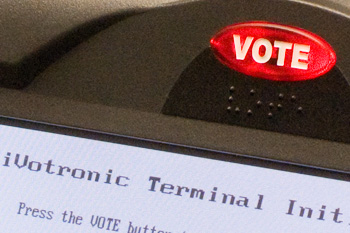
 This Monday, The Intercept broke the story of a leaked classified NSA report [pdf link] on an email-based attack on a various US election systems just before the 2016 US general election.
This Monday, The Intercept broke the story of a leaked classified NSA report [pdf link] on an email-based attack on a various US election systems just before the 2016 US general election.
The NSA report, dated May 5, 2017, details what I would assume is only a small part of a more comprehensive investigation into Russian intelligence services' "cyber operations" to influence the US presidential race. The report analyzes several relatively small-scale targeted email operations that occurred in August and October of last year. One campaign used "spearphishing" techniques against employees of third-party election support vendors (which manage voter registration databases for county election offices). Another -- our focus here -- targeted 112 unidentified county election officials with "trojan horse" malware disguised inside plausibly innocuous-looking Microsoft Word attachments. The NSA report does not say whether these attacks were successful in compromising any county voting offices or what even what the malware actually tried to do.
Targeted phishing attacks and malware hidden in email attachments might not seem like the kind of high-tech spy tools we associate with sophisticated intelligence agencies like Russia's GRU. They're familiar annoyances to almost anyone with an email account. And yet they can serve as devastatingly effective entry points into even very sensitive systems and networks.
So what might an attacker -- particularly a state actor looking to disrupt an election -- accomplish with such low-tech attacks, should they have succeeded? Unfortunately, the possibilities are not comforting.
Encryption, it seems, at long last is winning. End-to-end encrypted communication systems are protecting more of our private communication than ever, making interception of sensitive content as it travels over (insecure) networks like the Internet less of a threat than it once was. All this is good news, unless you're in the business of intercepting sensitive content over networks. Denied access to network traffic, criminals and spies (whether on our side or theirs) will resort to other approaches to get access to data they seek. In practice, that often means exploiting security vulnerabilities in their targets' phones and computers to install surreptitious "spyware" that records conversations and text messages before they can be encrypted. In other words, wiretapping today increasingly involves hacking.
This, as you might imagine, is not without controversy.